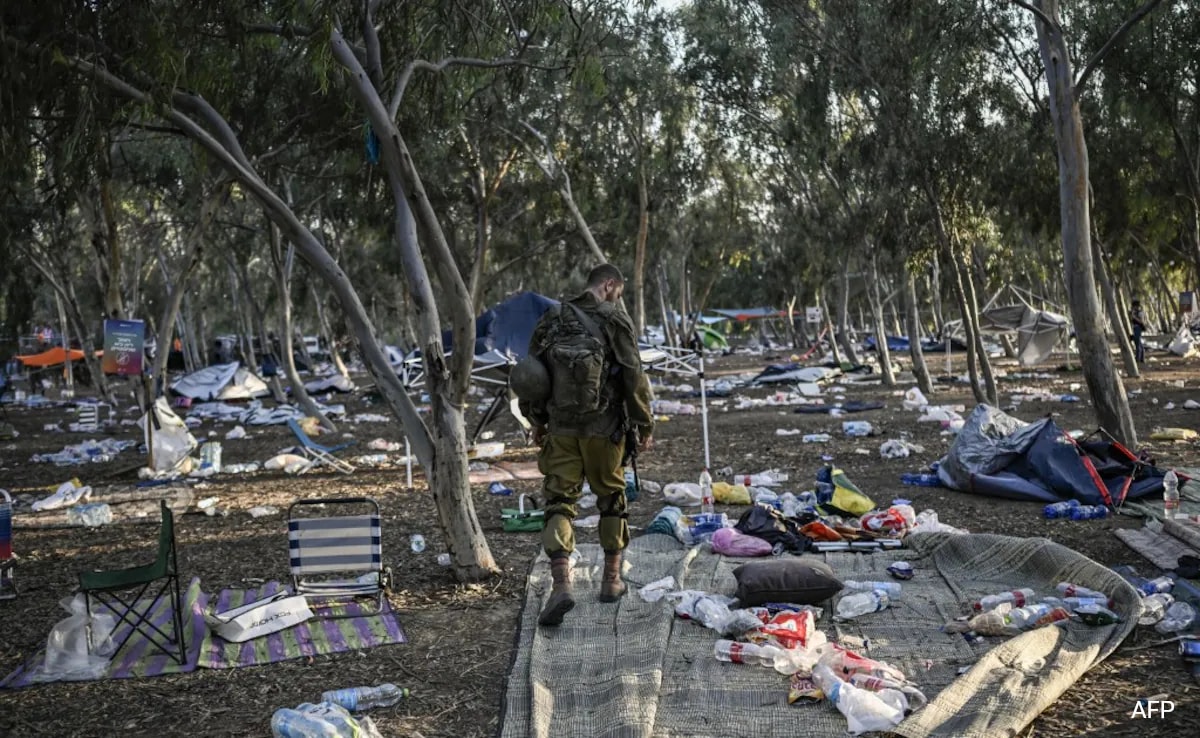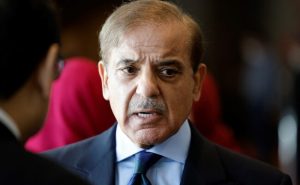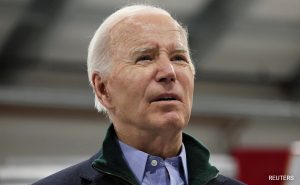2024-02-17 19:50:57

Israel’s retaliatory assault on Gaza has killed at least 28,858 people (File)
Cairo, Egypt:
Mediator Qatar acknowledged Saturday that prospects for a new pause in Israel’s war with Hamas were “not really promising” as Israel rejected appeals to hold off on a threatened assault on the Gaza city of Rafah.
Prime Minister Benjamin Netanyahu said that foreign countries calling on Israel to spare the city, where 1.4 million Palestinians have sought refuge, were effectively telling the country to “lose the war” against Hamas.
Truce efforts had intensified this week as Qatar and fellow mediators Egypt and the United States scrambled to secure a ceasefire before Israeli troops enter Rafah, the last major population centre in the Gaza Strip still untouched by Israeli ground troops.
But despite a direct appeal from US President Joe Biden earlier this week, Netanyahu insisted the operation would go ahead regardless of whether further releases of Israeli hostages were agreed with Hamas.
“Even if we achieve it, we will enter Rafah,” he told a televised news conference Saturday.
Qatari Prime Minister Mohammed bin Abdulrahman Al-Thani, who has met with negotiators from both Israel and Hamas this week, said efforts for a ceasefire had been complicated by the insistence of “a lot of countries” that any new truce involve further releases of hostages.
“The pattern in the last few days is not really very promising,” he said at the Munich Security Conference.
His bleak assessment came as Hamas threatened to suspend its involvement in truce talks unless relief supplies are brought into the north of the Gaza Strip, where aid agencies have warned of a looming famine.
“Negotiations cannot be held while hunger is ravaging the Palestinian people,” a senior source in the Palestinian group told AFP, asking not to be identified as he is not authorised to speak on the issue.
Earlier, Hamas chief Ismail Haniyeh reiterated the group’s demands, which Netanyahu dismissed as “ludicrous”.
They include a complete pause in fighting, the release of Hamas prisoners and the withdrawal of Israeli troops, with Qatar-based Haniyeh saying Hamas would “not agree to anything less”.
Netanyahu also rejected moves by some Western governments towards unilateral recognition of a Palestinian state, without waiting for a negotiated peace deal between the two sides.
“After the terrible massacre of October 7, there can be no greater reward for terrorism than that and it will prevent any future peace settlement,” he said.
The hawkish premier was speaking as thousands of Israelis protested in Tel Aviv, accusing his government of abandoning Israeli hostages.
They chanted that the government had “blood on its hands” and called for Israel to negotiate.
Fears for patients after raid
Israel said it had taken 100 people into custody at one of Gaza’s main hospitals Saturday after troops raided the facility, with fears mounting for patients and staff trapped inside.
At least 120 patients and five medical teams are stuck without water, food and electricity in the Nasser Hospital in Gaza’s main southern city of Khan Yunis, according to the health ministry.
Israel has for weeks concentrated its military operations in Khan Yunis, the hometown of Hamas’s Gaza leader Yahya Sinwar, the alleged architect of the October 7 attack that triggered the war.
Intense fighting has raged around the Nasser Hospital — one of the Palestinian territory’s last major medical facilities that remains even partly operational.
The power was cut and the generators stopped after the raid, leading to the deaths of six patients due to a lack of oxygen, according to Gaza’s health ministry.
“Newborn children are at a risk of dying in the next few hours,” the ministry warned Saturday.
The Israeli army said troops entered the hospital on Thursday, acting on what it said was “credible intelligence” that hostages seized in the October 7 attack had been held there. It later acknowledged it had found no firm evidence that they had.
The army has insisted it made every effort to keep the hospital supplied with power, including bringing in an alternative generator.
The raid has been criticised by medics and the United Nations.
A witness, who declined to be named for safety reasons, told AFP the Israeli forces had shot “at anyone who moved inside the hospital”.
The Gaza war began with Hamas’s October 7 attack which resulted in the deaths of about 1,160 people in Israel, mostly civilians, according to an AFP tally of Israeli official figures.
Militants also took about 250 people hostage, 130 of whom are still in Gaza, including 30 who are presumed dead, according to Israeli figures.
Israel’s retaliatory assault on Gaza has killed at least 28,858 people, mostly women and children, according to the territory’s health ministry.
‘We need food now’
In northern Gaza, many are so desperate for food they are grinding up animal feed.
“We need food now,” said Mohammed Nassar, 50, from Jabalia in northern Gaza. “We’re going to die from hunger, not by bombs or missiles.”
As a much-needed delivery of supplies arrived in southern Gaza Saturday, the UN warned that Gazans are close to famine while the head of its agency for Palestinian refugees accused Israel of waging a campaign to “destroy” it.
Israel has called for UNRWA chief Philippe Lazzarini to resign following claims a Hamas tunnel was discovered under its Gaza City headquarters.
Lazzarini told Swiss media group Tamedia that UNRWA didn’t have the capabilities to be examining what was 20 metres underground in Gaza.
Several governments — including the United States and Britain — have suspended funding after Israeli allegations that 12 of UNRWA’s 13,000 staff in Gaza may have participated in the October 7 attack.
Lazzarini said $438 million has been frozen, and if it continues then operations will “very quickly be at risk”.
“Without new donors, UNRWA will have to cease operations in April,” he said.
(Except for the headline, this story has not been edited by NDTV staff and is published from a syndicated feed.)
qatar gaza truce deal,gaza truce deal talks cairo,israel hamas war
Source link
![]()



